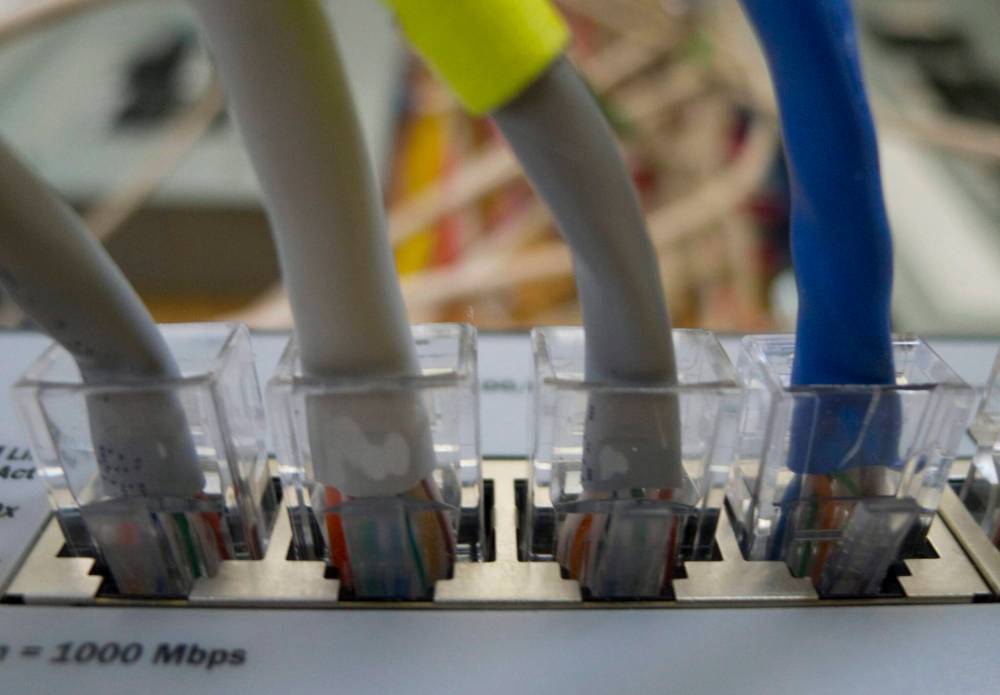Separating digital fact from fiction
Advertisement
Read this article for free:
or
Already have an account? Log in here »
To continue reading, please subscribe:
Monthly Digital Subscription
$0 for the first 4 weeks*
- Enjoy unlimited reading on winnipegfreepress.com
- Read the E-Edition, our digital replica newspaper
- Access News Break, our award-winning app
- Play interactive puzzles
*No charge for 4 weeks then price increases to the regular rate of $19.00 plus GST every four weeks. Offer available to new and qualified returning subscribers only. Cancel any time.
Monthly Digital Subscription
$4.75/week*
- Enjoy unlimited reading on winnipegfreepress.com
- Read the E-Edition, our digital replica newspaper
- Access News Break, our award-winning app
- Play interactive puzzles
*Billed as $19 plus GST every four weeks. Cancel any time.
To continue reading, please subscribe:
Add Free Press access to your Brandon Sun subscription for only an additional
$1 for the first 4 weeks*
*Your next subscription payment will increase by $1.00 and you will be charged $16.99 plus GST for four weeks. After four weeks, your payment will increase to $23.99 plus GST every four weeks.
Read unlimited articles for free today:
or
Already have an account? Log in here »
Hey there, time traveller!
This article was published 24/07/2023 (858 days ago), so information in it may no longer be current.
Online, confirmation bias is easy to maintain.
The worldwide web was once pitched as a democratizing force that could empower the masses through a vastness of accessible information and life-improving tools. The rise of social media, however, has thrown a wrench in that imagined utopia — a wrench that has loosened the framework of our shared reality and caused chaos for real-world democracies.
Online, it’s easy to cherrypick information that fits a specific worldview, regardless of its basis in fact. On social media, disinformation can spread like wildfire, fuelled by outrage, leaps of logic and algorithmic manipulation.

Instead of making us smarter and more connected, the internet has created countless echo chambers vulnerable to exploitation by bad actors. So, what’s to be done about the current state of online affairs?
Improved digital media literacy among the general population would be a logical place to start, with Canadian non-profit MediaSmarts categorizing critical online thinking as “the first and last line of defence” against disinformation in a recent Canadian Press article.
Earlier this year, MediaSmarts education director Matthew Johnson testified about the need to improve digital literacy among Canadians of all ages at a committee meeting on foreign interference. MPs are in the process of crafting a possible public inquiry into foreign interference, following alleged attempts by China to meddle in the 2019 and 2021 federal elections via social media.
According to Johnson, older generations are, generally, too trustworthy of online information, while younger ones are wholly distrustful — causing critical thinking issues on both ends of the spectrum.
In Manitoba, media literacy is part of the curriculum from kindergarten through Grade 12. Students are asked to analyze, evaluate and respond to various forms of media content. Beyond the classroom, however, citizens are largely left to their own devices.
The tech giants behind the most popular social platforms have proven to be ineffective moderators of fake news. Instead, their algorithms prioritize popular content, no matter the veracity or underlying agenda.
The situation has only become more dire in Canada, with Meta and Google blocking news links and media accounts for Canadian users in protest of Bill C-18, the federal government’s Online News Act, which will require companies to pay outlets for news content shared to their sites.
This kind of censorship of credible information opens the door for more foreign interference and promises to further degrade digital media competency among the public. When unverified videos and biased blog posts are all that’s available, conspiracy theories are bound to take hold even more firmly.
The move could also pose real public safety risks if outlets are unable to amplify reporting during natural disasters, such as wildfires or floods. The effect on civic engagement during local elections is yet to be seen.
A national public education campaign could help curb the damage, but alternate avenues would need to be explored since the feds have vowed to pull advertising from Facebook and Instagram in reaction to the companies’ retaliation against regulation.
We’ve arrived at a critical time in the digital era, where upholding the social fabric has become the responsibility of the individual. Learning how to spot fake news (and AI-generated media), questioning confirmation bias and engaging with opposing viewpoints are simple ways to become a more conscious consumer of online content.
The stakes have never been higher.
History
Updated on Monday, July 24, 2023 12:07 PM CDT: Fixes cutline









